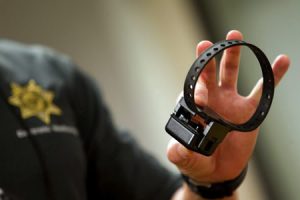Trump Advisor Wants to Electronically Monitor Those on Terror Watch List
Rudy Giuliani wants to electronically monitor anyone on the terror watch list and, as an advisor to the Trump campaign, one can only assume Trump will soon take the same policy stance. Trump has faced scrutiny for wanting to ban all Muslims from the country and while his political stance has recently softened a bit from his original blanket ban, one can only wonder if this is masked as an attempt to specifically monitor Muslims.
The question came after news of an attack, claimed in the name of ISIS, on a French priest in northern France. One of the attackers was known as a jihadist sympathizer who was being electronically monitored by French officials after being caught twice trying to travel to Syria under a relative’s identification.
“I would think that’s an excellent idea,” said Giuliana. “If you’re on the terror watch list, I should you know you’re on the terror watch list. You’re on there for a reason.” 
This doesn’t come as much of a surprise, as Giuliani has a history of monitoring the Muslim community. In 1993, following the World Trade Center bombing, Giuliana put undercover agents inside mosques. Surveillance of the Muslim community only increased in New York after the 9/11 attacks, which included photo and video surveillance, police informants, and databases with personal information on innocent Muslims throughout the community.
Is This Type of Monitoring Even Legal?
Electronic monitoring isn’t a new concept. GPS tracking devices have been put on criminals when on house arrest, similar to the monitoring plan in France mentioned above. Sex offender registries are also electronically monitored. Although these type of registries don’t electronically monitor your every move and whereabouts, in depth personal information is included.
A major difference between those on house arrest and a sex offender registry versus those on the terror watch list is primarily a conviction–many on the terror watch list haven’t been convicted of anything and, even worse, many are put on there in error.
Today, approximately 680,000 people are included on the terror watch list. As with the no fly list, because of the number of errors and low standards of factual evidence required, there’s a lot of scrutiny surrounding the legality of these type of watch lists. People can be listed even if they have no recognized terrorist group affiliation; it can even be something as simple as being associated with someone else the government deems a risk.
On top of that, the lists are notorious for ethnic and religious profiling, where American Muslims are disproportionately represented. Dearborn, Michigan, an area with the highest concentration of Arab Americans, has the second highest number of watch-listed individuals in the U.S.
So, Where Do We Draw the Line?
In 2012, the Supreme Court decided that GPS devices mounted to a vehicle qualified as a search within the meaning of the 4th Amendment, which called into question North Carolina’s law that requires convicted sex offenders to wear electronic GPS anklets for the rest of their life. North Carolina needed to provide an explanation as to why the law did not violate the Constitution. The 4th Amendment only prohibits unreasonable searches, so, if this is the direction Giuliani and the Trump campaign wants to take, they’ll have to come up with valid and reasonable explanation as to why it’s reasonable to electronically monitor those on the terror watch list.
Reasonableness depends on the totality of circumstances and the extent to which a search intrudes on privacy expectations. Obviously, the government is typically given broad discretion when it comes to topics like national security. There’s a heavy argument that national security trumps privacy expectations, at least to a point, so it’s possible this would fly. But, is it really reasonable?
When you consider the fact that the monitors track a suspect’s whereabouts, at the end of the day, that’s probably not really going to prevent much. The attack in northern France happened while the suspect’s anklet was turned off during a time he was allowed to go to work. He headed into a church and, just as with any other public place an individual is allowed to be, that doesn’t really do much to alert the authorities you’re up to no good.
Even though terror threats are a strong argument, an otherwise discriminatory rule requiring only certain persons to wear the electronic tags would no doubt be unconstitutional.

Comments